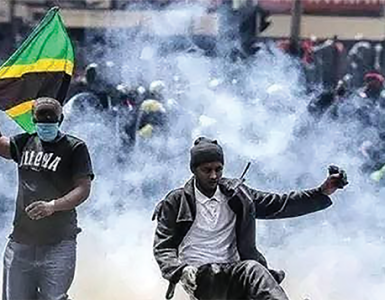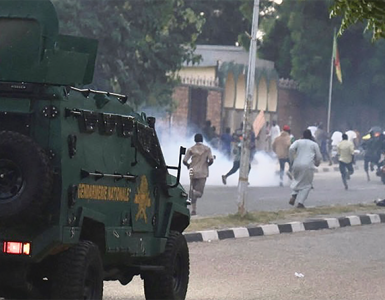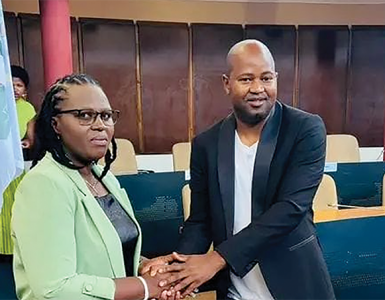Danger: Making use of anonymous sources is dangerous because what they say may have an agenda to mislead.
By Monk Nkomo
Journalists should avoid succumbing to temptations of accepting bribes and thereby compromising their integrity and independence in return for favourable coverage for certain political figures or parties as the media enter into a dangerous zone of election coverage in South Africa.
The Press Council of South Africa (PCSA), in a briefing to guide journalists on how to cover the forthcoming general elections, also said editors and journalists should be wary of certain political parties and interest groups who, during these times, would put all their resources into pushing their particular message, sometimes resorting to lies and manipulation.
‘’ Election periods are times when journalists need to be particularly vigilant, not least because misinformation can sometimes lead to violence.’’
The PCSA also warned editors and journalists to be cautious when reporting on opinion polls. The media should provide sufficient technical and contextual information for audiences to judge the poll’s reliability. This included the identity of the commissioning body, the identity of the polling organization and its expertise, the purpose of the poll and the nature of the questions or issues explored, the geographic coverage and demographic profile of those who were polled, the methods used and the margin of error.
Journalistic ethics were also not different during elections. A distinction however should however be made between reporting and commenting. A publication was at liberty to advocate a certain point of view and was free to support a certain political party and to advocate its policies but the normal rules of journalism such as fairness and accuracy, must apply.
‘’ The media enter into a dangerous zone at election times, which is when politicians may offer favours of various kinds in return for favourable coverage, from direct bribes to promises of jobs, special access and many others,’’ the PCSA said.
While there was indeed no such thing as objectivity, journalists should at all times be neutral in their reporting. They should not allow their convictions to overshadow their reporting. They should not disclose their political preferences to anybody.
Journalist should inform themselves fully on the election process, rules and legal framework. Making use of anonymous sources was also dangerous especially during election times because such sources do not have to be accountable for what they say and they may easily have an agenda to mislead. Leaks should also be treated with great care. Journalists should always ask who benefits from a particular piece of information.
‘’ Though the story may nevertheless be important enough to report, it is important to know and reflect on how it benefits a particular side. Media releases should be viewed with healthy suspicion. Of course, the media should report the gist of such releases, but should not be fooled into believing that everything in those documents are true and presented in proper context.’’ The PCSA stressed that the media should always be fair in their coverage of political parties. All parties should be given a voice. Journalism played a critical role in ensuring that elections were properly democratic as they provided a key channel of communication between parties, candidates and voters.
‘’A vote only has a meaning if it is properly informed and journalists have the responsibility of making sure that voters can mark their ballots on the basis of full and reliable information.’’
Those who are the subject of critical reportage must be given reasonable opportunity by the media to reply to allegations. However, a distinction should be made between direct allegations of fact and general criticism , such as of a governing party’s record.
‘’ Robust debate is a mark of a healthy democracy and not every piece of electioneering needs a response’’.


































